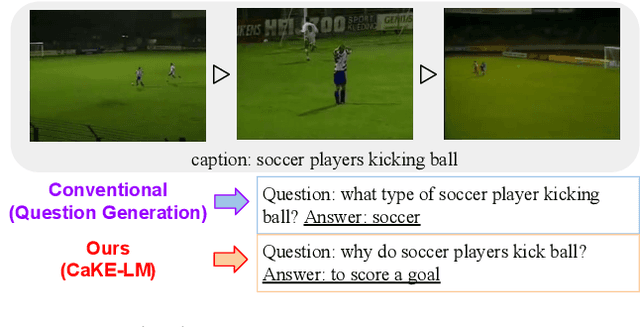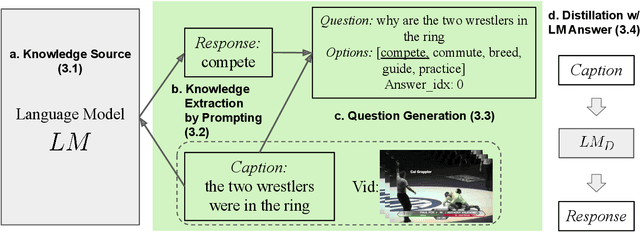Language Models are Causal Knowledge Extractors for Zero-shot Video Question Answering
Paper and Code
Apr 07, 2023



Causal Video Question Answering (CVidQA) queries not only association or temporal relations but also causal relations in a video. Existing question synthesis methods pre-trained question generation (QG) systems on reading comprehension datasets with text descriptions as inputs. However, QG models only learn to ask association questions (e.g., ``what is someone doing...'') and result in inferior performance due to the poor transfer of association knowledge to CVidQA, which focuses on causal questions like ``why is someone doing ...''. Observing this, we proposed to exploit causal knowledge to generate question-answer pairs, and proposed a novel framework, Causal Knowledge Extraction from Language Models (CaKE-LM), leveraging causal commonsense knowledge from language models to tackle CVidQA. To extract knowledge from LMs, CaKE-LM generates causal questions containing two events with one triggering another (e.g., ``score a goal'' triggers ``soccer player kicking ball'') by prompting LM with the action (soccer player kicking ball) to retrieve the intention (to score a goal). CaKE-LM significantly outperforms conventional methods by 4% to 6% of zero-shot CVidQA accuracy on NExT-QA and Causal-VidQA datasets. We also conduct comprehensive analyses and provide key findings for future research.
 Add to Chrome
Add to Chrome Add to Firefox
Add to Firefox Add to Edge
Add to Edge